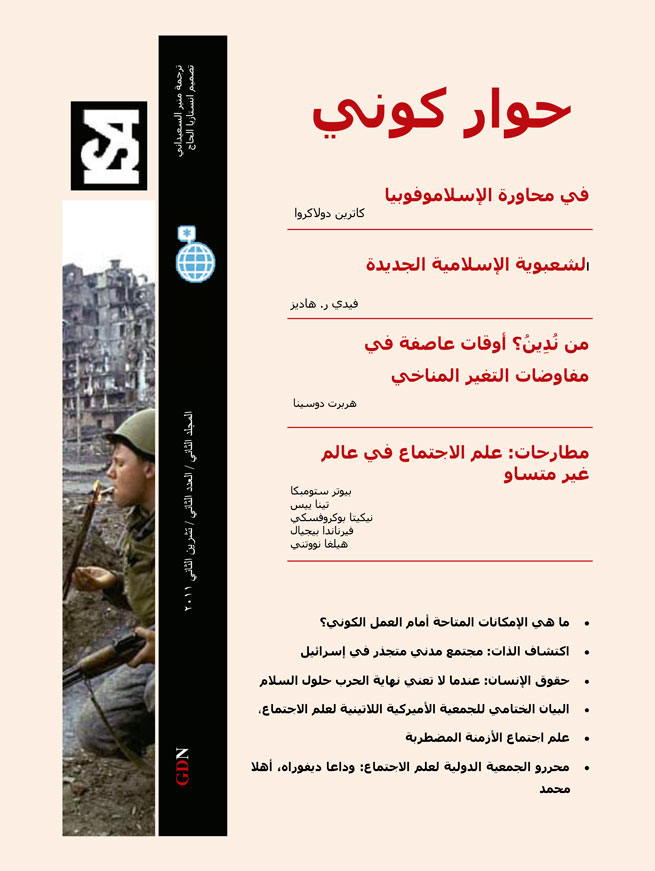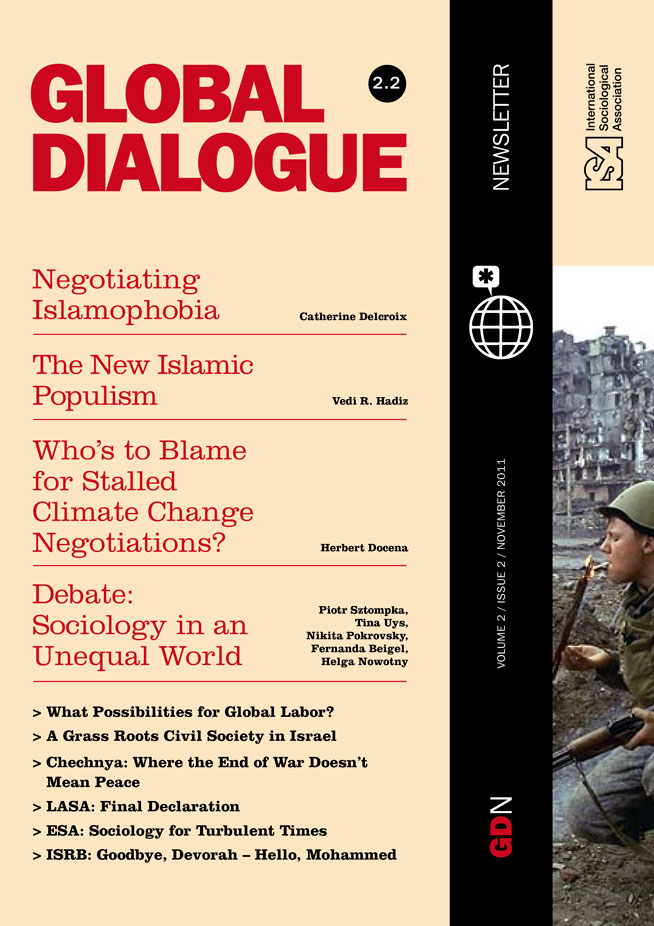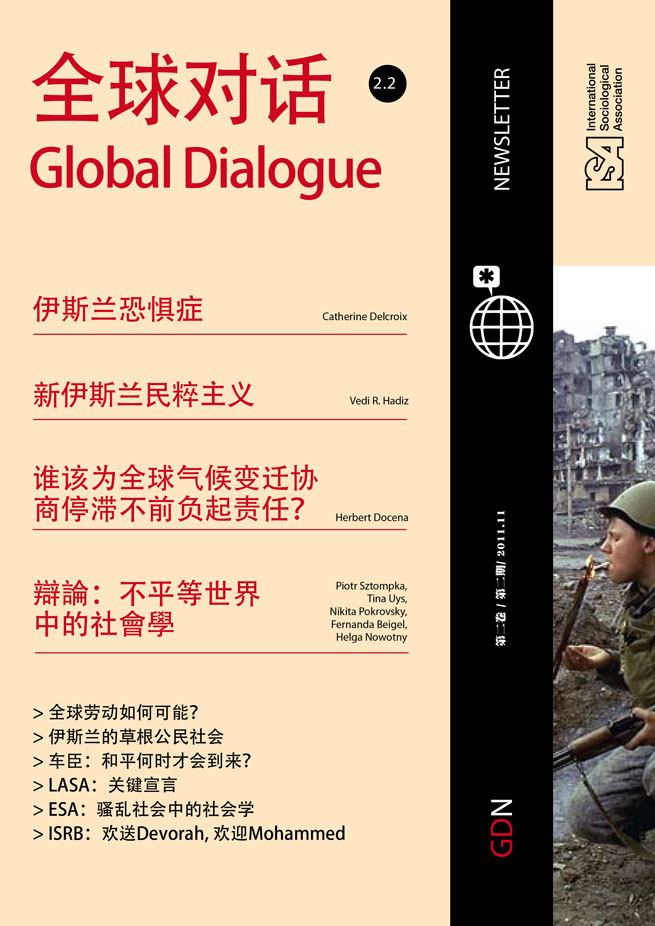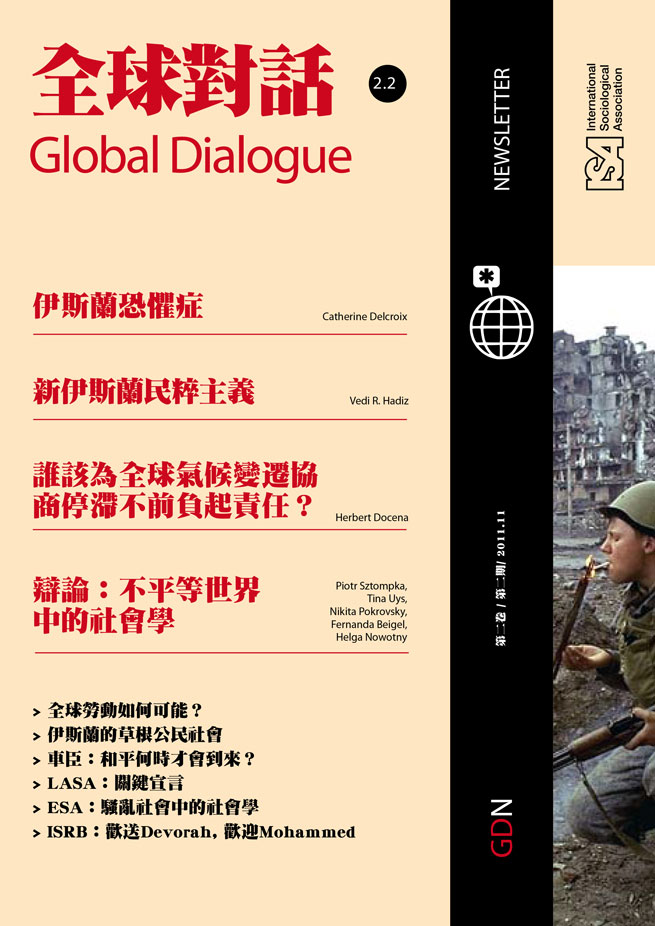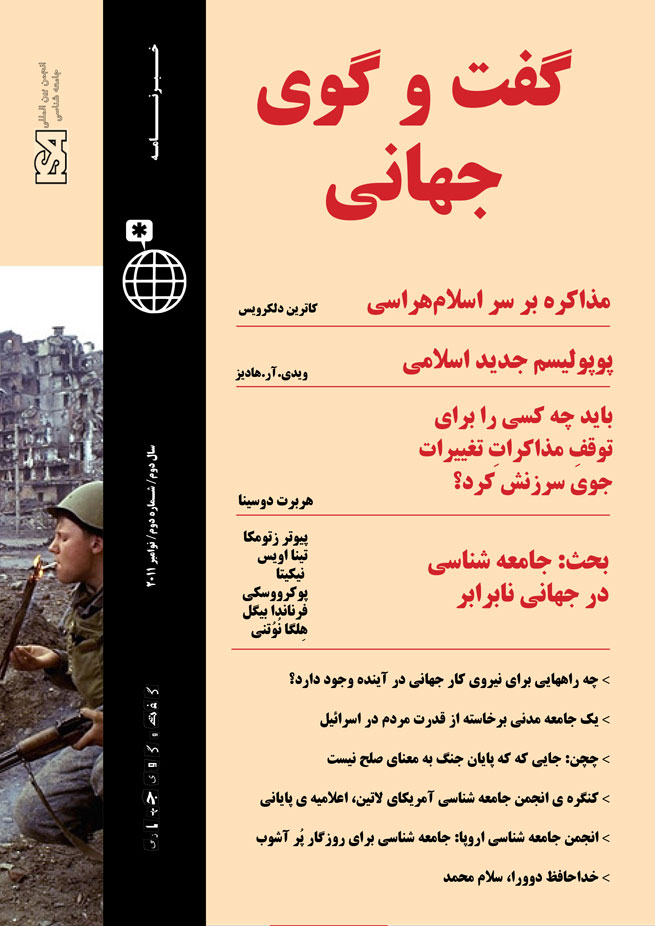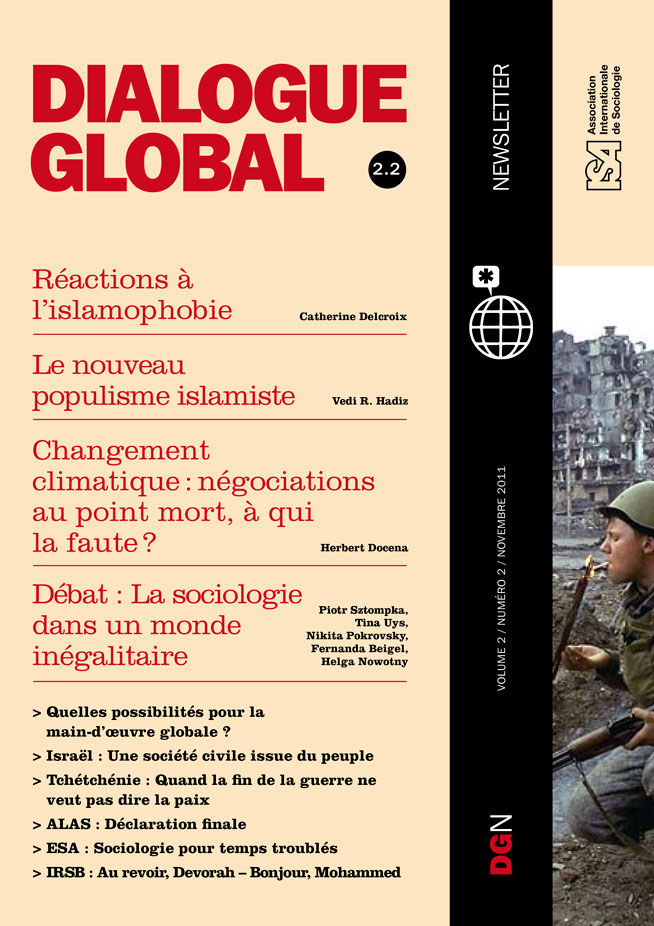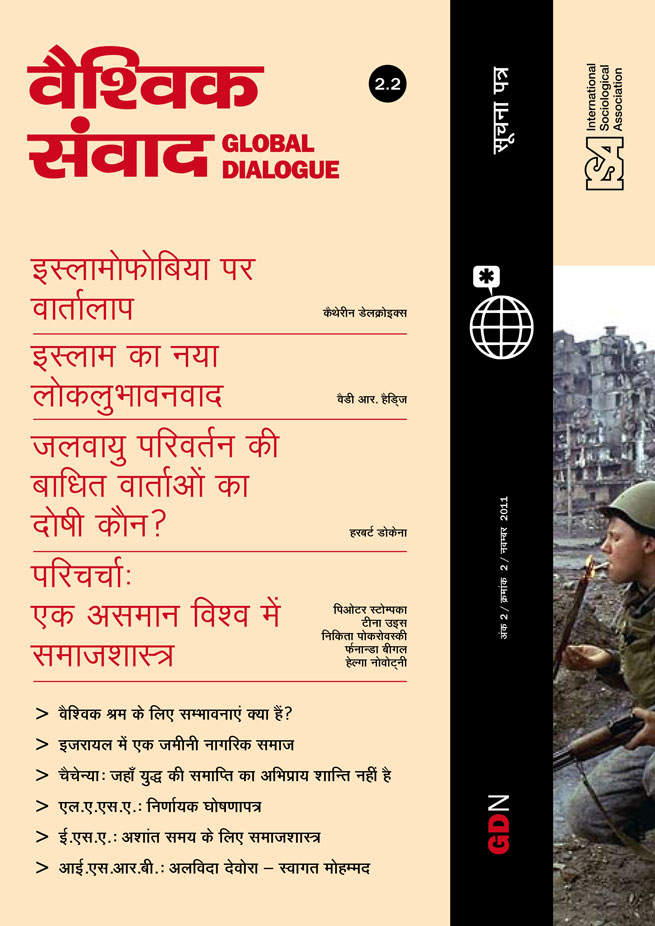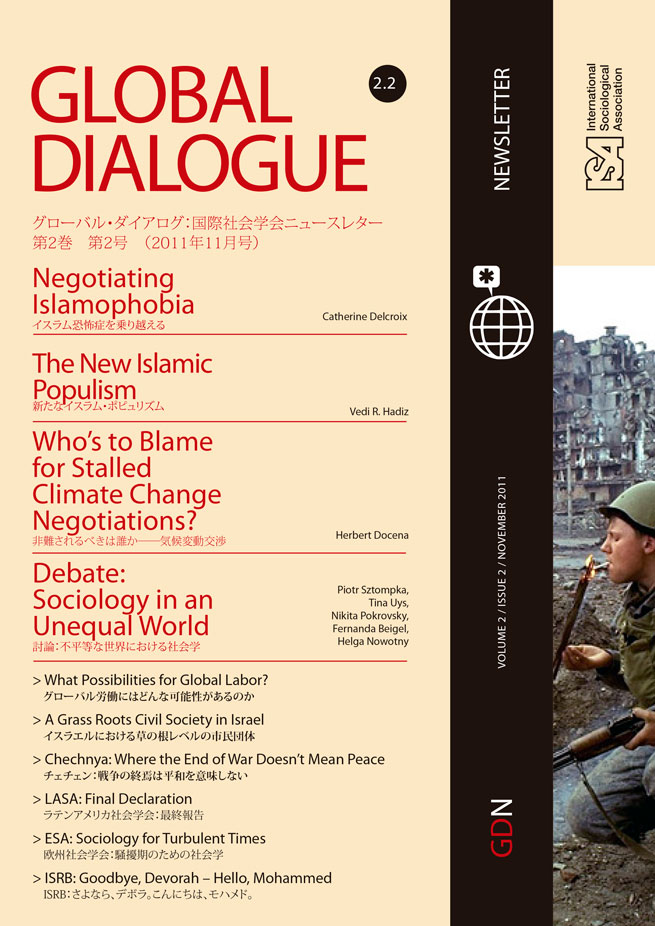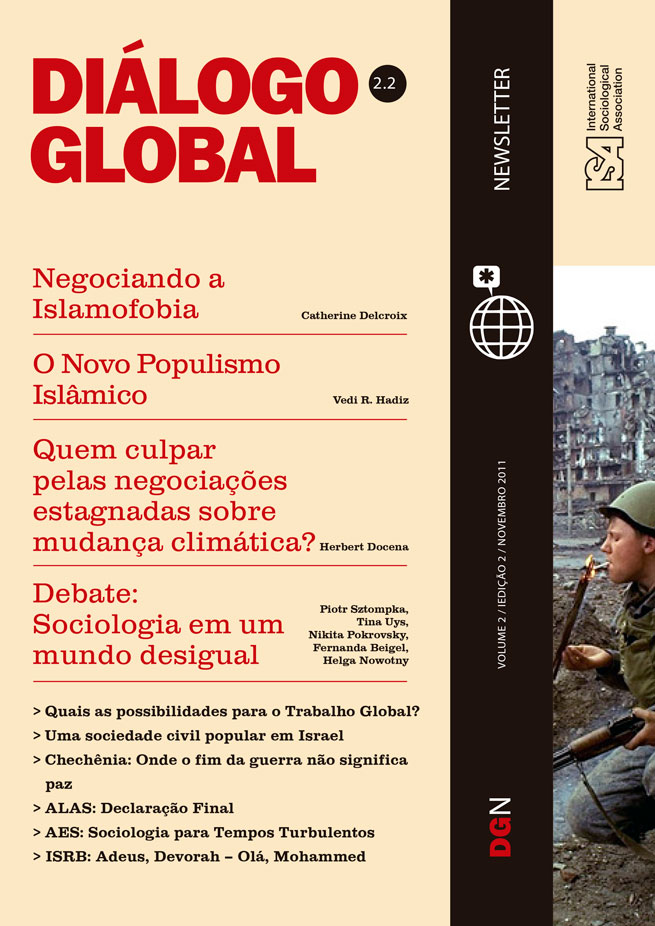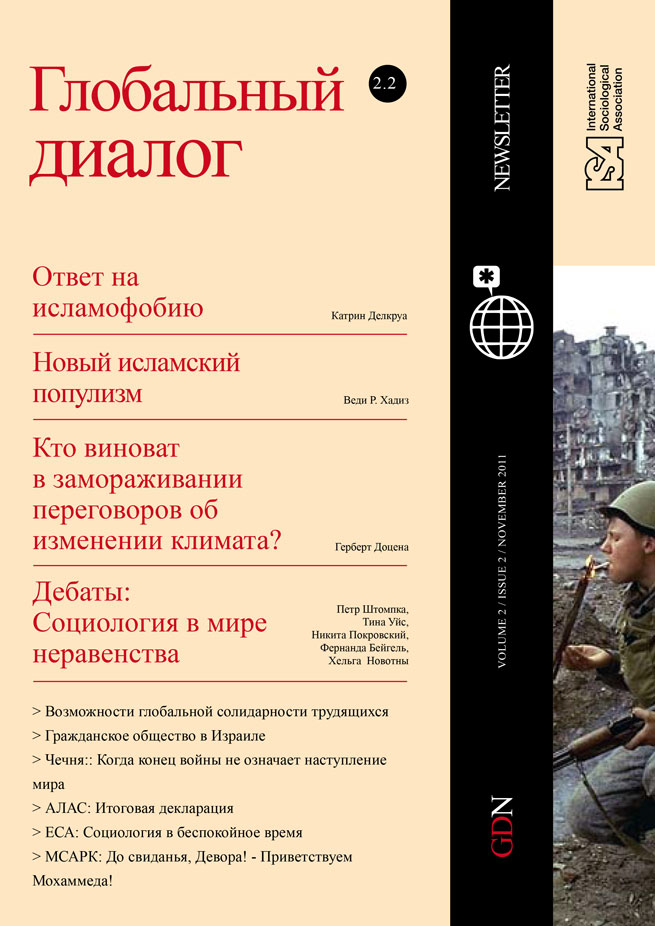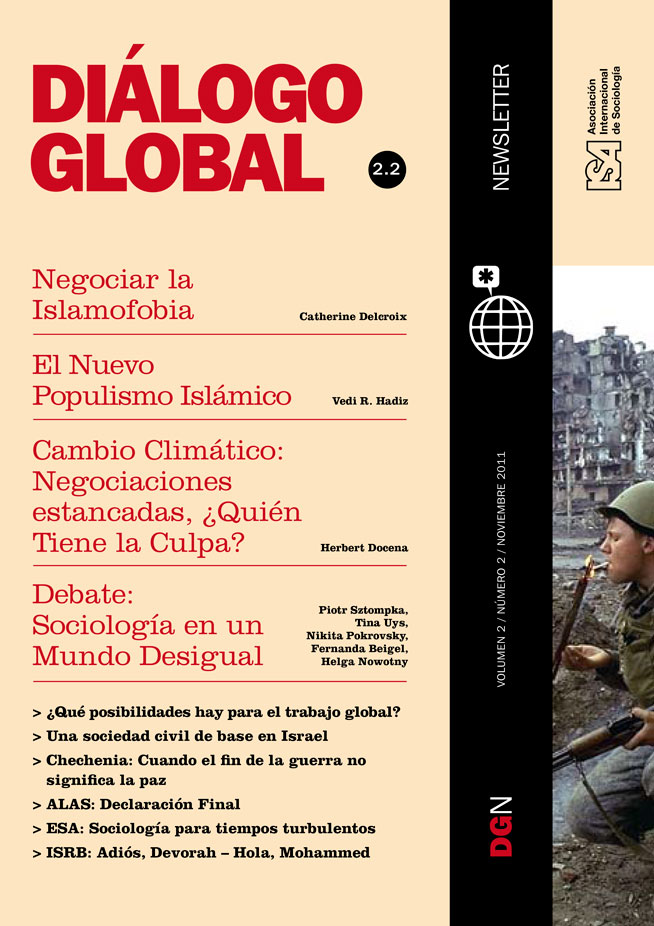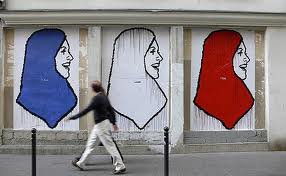Read more about Islam

The New Islamic Populism
by Vedi R. Hadiz
November 19, 2011
Islamophobia has been on the rise in Europe for some time. Just recently I was in Brussels participating in a scientific workshop of sociologists coming from various European countries, all working on citizenship in Europe. An eminent member of the European Parliament, who had helped draft the European Constitution, declared: “We Europeans cannot accept that Islam, which is a violent religion, call into question our European identity, which is Christian. Muslim migrants and their children must abandon their value systems and religious beliefs if they want to stay in Europe and be recognized as Europeans.” Most of us were very shocked! A colleague from the same country as this politician asked him: “Do you think your position is compatible with respect for minority rights, which is crucial to democracy?” This man answered: “Maintaining European order is the most important priority. It is more important than respect for minority rights, and even more important than democracy.”
Islamophobia is actually very old. In the French colony of Algeria a preconceived negative image was used to deprive the colonized of their property rights and civil rights: according to the décret Crémieux (1870) they could become French citizens and recover their rights as citizens insofar as they rejected their Muslim faith – which of course very few did. If they did not, they lost their rights and liberties and, thus, became fair game for the colonizers.
Independence wars changed the game in North Africa and elsewhere. Just as Pakistanis, Bangladeshis and Indians in Britain, or Indonesians, Moroccans and Turks in the Netherlands and Belgium, so Algerians, Moroccans and Tunisians in France were first defined as (temporary) labor power, ‘guest workers’ as they were called in neighboring countries. Then they got authorization to bring their wives and children; but the class dimension was always present, although it now took on an ‘ethnic’ (read ‘skin colour’) dimension. Nowadays their children and grandchildren claim full European citizenship, but they have to fight the stigma attached to their ‘religion’, or their ‘origin’.
Confronted with pervasive racism and Islamophobia, how do European (French) Muslims react? Nobody knows the actual answer; only through a series of fieldwork studies could we get an approximate answer. For the last 20 years I have been undertaking in-depth case studies of Muslim immigrant families living in France, focusing, in particular, on how working-class families originating from the Maghreb educate their children to face discrimination. I have used a methodological approach based on the reconstruction of family histories, drawn from life-history interviews with several members of each family: parents as well as children. I have repeated these case studies in many different regions and cities of France.
To date, no one has offered a framework that provides a detailed account of the reactions of the discriminated to their discrimination to include both European Jews facing anti-Semitism in the 1920s and Muslims in the present period. To this end I have appropriated the famous typology of Albert Hirschman: ‘exit’, ‘voice’ and ‘loyalty’. Hirschman, an economist, was considering the range of individual reactions of people confronting a dysfunctional state bureaucracy, for example a railroad State monopoly which is badly managed. Hirschman argued that all reactions to this situation fall into either one of three categories – exit, voice or loyalty. Users may either keep accepting the high cost of travelling by train (loyalty), protest with complaints (voice), or go by car and forget about railroads (exit).
Now it happens that this typology works rather well when applied to reactions of people confronted with racism: they may either protest (voice), which relatively few Jews did in the 1930s, and few Muslims do today. They may remain passive and hope that the storm will recede, as did so many integrated Jews in Germany or France. This is ‘loyalty’, which in their case ended tragically. Or they may decide to leave the country, that is ‘exit’.
Exit
Let us start with ‘exit.’ In France a growing number of young men who can’t find a first job try their luck in Montreal. Canada still accepts new immigrants if they are skilled. Most of them experience the same epiphany, which one expressed as follows: “In France I could not find a job because of my Arab name, the name of my father who emigrated from Morocco. In Montreal, all of a sudden I stopped being seen as an Arab. To Canadians I was French, just French. Then they ask me about my skills... It was so pleasant. In France I had wanted that so much: to be like everybody else, a Frenchman. I tried so hard, I made many efforts, but people always came back with the same question about my ‘origins’ or my religion.”
So to flee racism through emigration is one good solution. Such young French men do migrate to Australia or Arab Gulf countries. Not everybody however has access to such possibilities and there are other, less happy ways to ‘exit’. It is well-known that racism may damage the self, self-perception, self-confidence, especially for individuals who are more isolated and less resilient. Some may resort to drugs or even suicide, which are also forms of ‘exit’.
Voice
‘Voice,’ by contrast, goes in the opposite direction. ‘Voice’ is protest against the unfair social order which is discriminating against you. It may be voiced individually or collectively. ‘Voice’ demands recognition, it is a struggle for recognition: “Hey Society! I am one of your members. Do recognize me as such! And do also recognize my minority rights! Do live up to your proclaimed ideals!”
In France there are many examples of ‘voice’ by discriminated groups, some formal and organized, others informal and short-lived such as the riots in the banlieues in November 2005, triggered by the killing of a young man trying to escape the police. In contrast to ‘exit’, protesting against police violence, asking ‘France’ to live up to its ideals of ‘Liberté, Égalité, Fraternité’, does not mean rejecting French society, as so many people believe. Quite the contrary. It means that the discriminated still believe in society’s capacity to reform itself.
Of the three main types of responses to racism, ‘voice’ is the one that opens the possibility of moving from individual to collective response – from micro-processes to the local, regional, or even national scales. But this road is not easy for the social order always fights back, and not always through repression. It is more clever than that; its most frequent weapons are discursive – clever ways of distorting the facts and the intentions of its opponents.
Let me take the example of the Muslim scarf. Why is it that girls and young French women, born of Muslim parents, decide to wear a scarf? Is it because of the pressure of fundamentalists? When sociologists interviewed high-school girls wearing the scarf, they discovered it was not that at all. Most of these girls declared they had decided by themselves to wear a scarf; often against the will of their parents. At first nobody believed them, everybody thought they were lying. But eventually it became clear that they were, indeed, telling the truth. They also said it did not mean that they felt any less French for that; not at all.
The best interpretation of the ‘scarf’ phenomenon has been provided by Houria Boutelja, pointing to the contradictory situation of French Muslim women of the second generation. On the one hand, there is the weight of racism against Arabs, growing Islamophobia, and discrimination in labour markets. But the pressure is much stronger on their brothers than on these young women to whom ‘white’ society sends the message: “Leave the place where you grew up; escape the authority of your father and brothers; leave them behind. Turn your back on the past, come and join the open French society.”
It is quite a temptation for these girls, says Houria Boutelja – the temptation of freedom. For, indeed, there are still traces of patriarchal culture, norms and prohibitions in many migrant families from the Maghreb. But it would amount to a betrayal of one’s family and community. This is a trap, says Houria Boutelja, but to this trap they have found a solution which is the scarf. By wearing it these young women are speaking in a silent ‘voice’ to French society: “No, we will not betray our parents and our community. You have been mistreating them, first as guest workers, and now as Muslims; we will remain definitely on their side!”
But, at the same time, says Houria Boutelja, the scarf also sends a message to the men of their community: their father, brothers and cousins. And the message is: “Look, we have not betrayed you, we are supporting you; we have turned down ‘their’ offer, yes? Now please leave us free to go our own way. We will not misbehave; but we want to be free to go on studying; we want to remain single rather than being married to somebody we do not know; we want to get ready for professional life.” This is not ‘exit’; this is not ‘loyalty’ (to French society) either; this is a clear case of ‘voice’, but a sophisticated one.
Loyalty
What then does ‘loyalty’ mean? It is hard to be loyal to a society which rejects you because you are seen as radically different. Nonetheless, this attitude of loyalty towards a racist society did prevail among the first generation of migrants, even in spite of the Algerian War of Independence. Thus, a national survey, conducted by Claudine Attias-Donfut in 2005 on elderly migrants in France of all origins, showed that more than 90% claim to feel at home in France.
Moreover, I have myself witnessed many migrant parents trying to convince their children not to retaliate when confronted with derogatory remarks. It was a strategy of teaching patience to their children so as to increase their chances of success. Second-generation youth, however, have a more transnational conception of loyalty: they believe in the values of the French Republic and define themselves as European citizens. Their feeling of belonging is often connected to the fact that they have family members in other European countries. They believe in European democracy and the protection of minority rights.
To belong or not to belong, that is the question but it takes two to belong. Islamophobia is the opposite of the recognition that is necessary to belong and to feel one belongs. Let me conclude with what Floya Anthias says about belonging: “Belonging is about both formal and informal experiences. Belonging is not just about membership, rights and duties, as in the case of citizenship, or just about forms of identification with groups or others, but it is also about the social places constructed by such identifications and memberships and [about] the ways in which social place affects the stability of the self, feelings of being part of a larger whole, and the emotional and social bonds tied to such places.”
This is the heart of the matter. I believe that as sociologists we have the means – for instance, by collecting case studies, by finding vivid examples through life histories – to modify the European common sense, ceasing to treat European Muslims as scapegoats; and, instead, considering them as part of us.
References
Anthias, F. (2002) “Thinking through the lens of Transnational Positionality,” http://www.imrstr.dcu.ie/ [4:1].
Attias-Donfut, C. (2006) L’enracinement. Enquête sur le vieillissement des immigrés en France. Paris: Armand Colin.
Boutelja, H. (2006) “On vous a tant aimé-es.” Entretien réalisé par Christelle Hamel et Christine Delphy. Nouvelles Questions Féministes 25(1).
Delcroix, C. (2009) “Muslim Families in France: Creative Parenting, Identity and Recognition.” Oral History 37(2).
Hirschman, A. (1972) Exit, Voice and Loyalty: Responses to Decline in Firms, Organizations and States. Cambridge: Harvard University Press.
Catherine Delcroix, University of Strasbourg, France
This issue is not available yet in this language.
Request to be notified when the issue is available in your language.
If you prefer, you can access previous issues available in your language:
